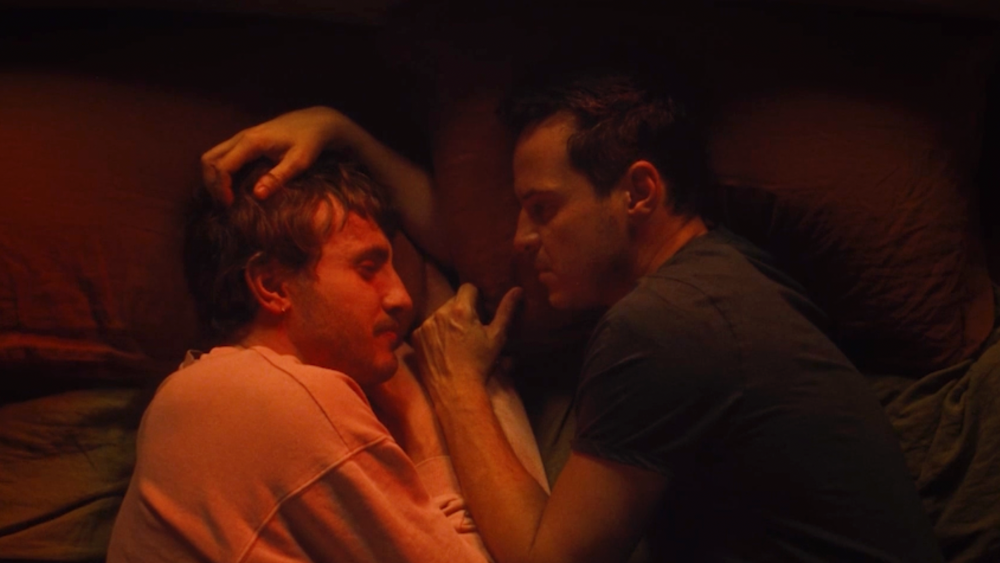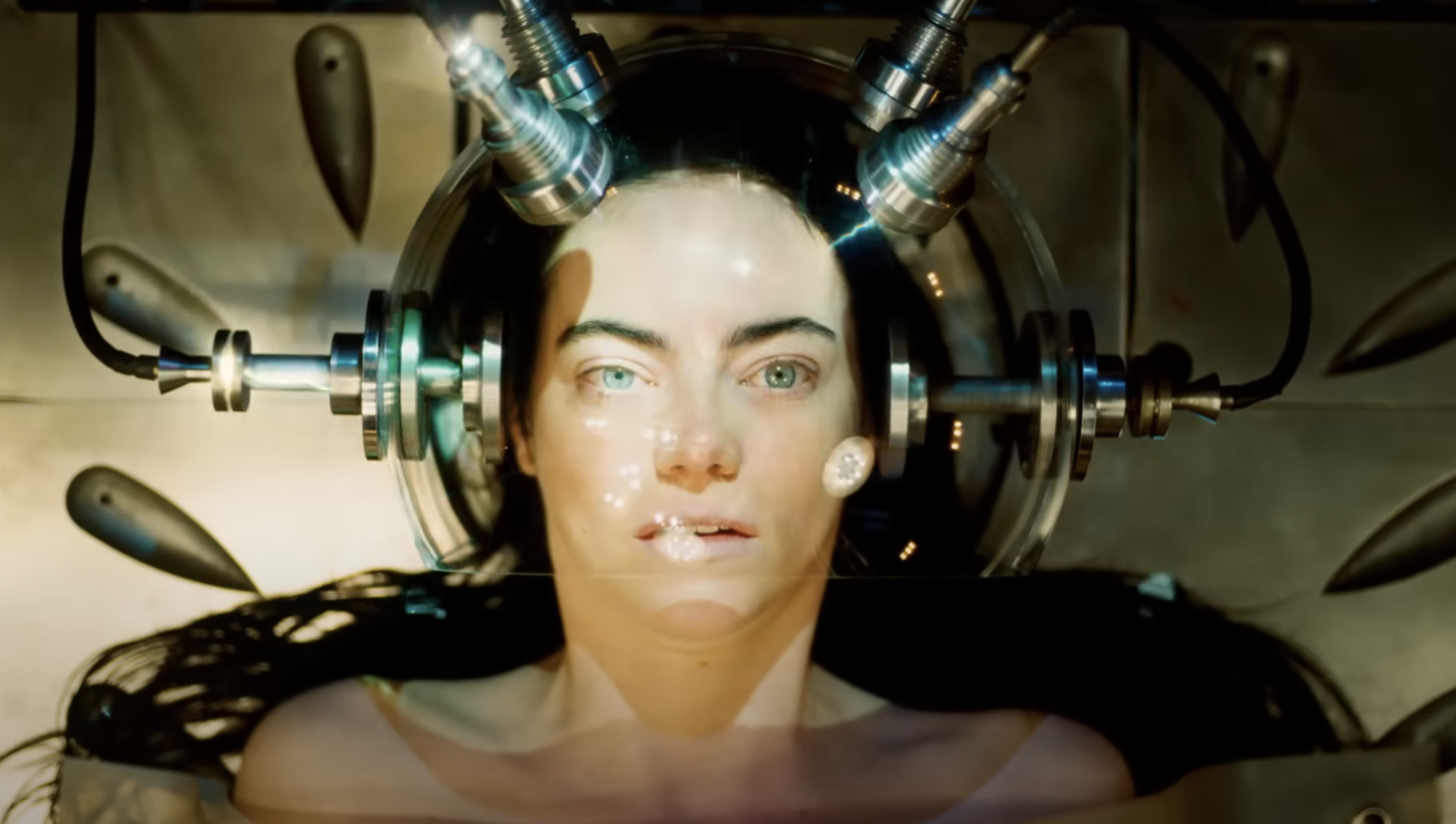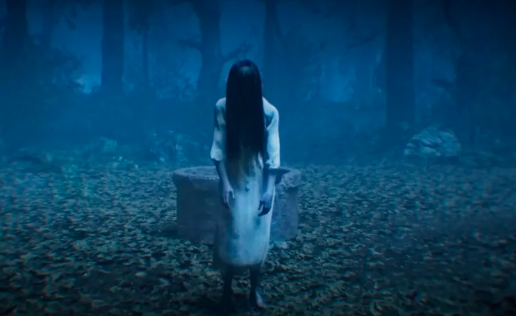Books & Culture
What Makes a Trainwreck?
Reading Sarah Hepola and Watching Amy Schumer

A woman wakes in an unfamiliar bed, unsure of who she’s with or how she got there. “Please don’t let this be a dorm room,” she chants to herself, only to find the truth is hardly better — she is on Staten Island.
Another woman comes to, mid-coitus, in an unfamiliar hotel room in Paris. She doesn’t recognize the man beneath her, but the intimate situation makes it inconceivable that she would ask for more information. “Excuse me, but who are you, and why are we fucking?” she wants to ask, but doesn’t. They keep fucking.
The first scene, which opens the new movie Trainwreck, written by Amy Schumer and directed by Judd Apatow, is played for laughs. The second, which begins Sarah Hepola’s memoir, Blackout: Remembering the Things I Drank to Forget, is written as a confession, appealing as much to her reader’s prurient rubbernecking as to her empathy. Though one achieves a laugh and the other a dropped-jaw, Blackout and Trainwreck are not on completely opposite ends of the comedy/drama spectrum. Hepola writes with a sense of humor — there’s a parallel universe in which this hotel scene is hilarious — and Trainwreck, for the most part, takes its characters seriously, allowing them to feel hurt and allowing them to grieve.
Both Hepola’s memoir and Schumer’s script tell stories about self-destructive women with habits that prevent them from leading healthy, fulfilling lives; although Schumer’s character, also named Amy, is actually pretty satisfied with her life. She’s not interested in commitment, and she excels at her job at a men’s magazine. Moral judgment might be placed on her personal life for being “unsettled,” or her professional life for being pandering and superficial, but she is not going to be the one to place it. Hepola, by contrast, knew for years that she would eventually have to quit drinking before she found the strength to follow through.
I am a fan of Amy Schumer and her TV show. Trainwreck made me, I will admit, both laugh very hard and cry just a little: the perfect combination. But reading Blackout before seeing Trainwreck ruined the movie for me — or, more accurately, ruined me for the movie. Hardened with a new understanding of the bitter cycle of pain, reward, and punishment that caused Hepola’s own trainwreck, it became difficult for me to accept the movie’s premise (Haha look at that trainwreck!) as either innately funny or poignant.
In the poster for Trainwreck, Schumer wears an evening gown as she chugs from a bottle sleeved in a paper bag, a tuxedo-ed Bill Hader standing behind her with a shocked expression. In the movie, however, Amy and Bill Hader’s character, Dr. Aaron Conners, do not attend a black tie event. Except on their first date when they both imbibe, Amy does not consume copious amounts of alcohol in front of him. Though he is annoyed when she smokes pot at an award luncheon in his honor, he is never shocked by her behavior. There is no stashing bottles in paper bags or holding back hair.
Beneath the title of the film are the words: “We all know one.”
To Hepola’s friends, she was once that one, the one that keeps drinking too much and more as all those around her age out of their 20s, enter their 30s, and inevitably ease up. One friend writes her a letter to say she can “no longer watch.” Another confronts her over dinner. Hepola writes, “Something was badly wrong between us. And it wasn’t some minor incident on the balcony, or a cab, but the long string of incidents that came before it.” Steadily, her friends pull away, or Hepola herself pulls away, not wanting to be held accountable to the promises she has made.
Indeed she does hold herself accountable, eventually. With this memoir, Hepola, now many years sober, conducts a fierce moral inventory of her life, an unblinking examination of the insecurities, the vanity, and the wounds that made her drink. Blackout is not without flaws. Hepola’s guilelessness means there will be no artistry in her prose, and too many pages are spent on her childhood in Dallas, where she experienced the usual feelings on preteen alienation and developed a preternatural taste for beer. Her life experiences may not be remarkable in that they are shared by many, but her hard-earned self-awareness is.
That sort of self-awareness is missing from Trainwreck, which doesn’t seem at all interested in why Amy drinks. Early in the movie, an explanation for Amy’s disinterest in committed relationships is given in the form of a flashback. Her father asks Amy and her sister, both small and blond and clutching their dolls, how they would feel if they could only play with one doll for the rest of their lives. Of course the girls are horrified by the idea, but the argument against monogamy affects only Amy. In present day, her younger sister Kim, played by Brie Larson, is happily married and expecting a child.
Though the flashback is a bit convenient, I’ll accept the overdetermined movie-logic as an explanation for Amy’s romantic outlook. In the world of Trainwreck, however, there is no such thing as sober, casual sex. There is only drunken promiscuity. (Amy’s friend at work is aghast to learn that Amy chose to spend the night at Aaron’s house, and didn’t just do it because she was too drunk to leave.) And thus the explanation for her preference for casual relationships slides into an explanation for her partying (aka drinking), behaviors that are often found together but are by no means interchangeable.
Hepola uses the prologue to Blackout to provide sociological context for her drinking. She explains the science behind a blackout (the hippocampus shuts down and can no longer form long term memories), and cites Sex and the City, Bridget Jones’s Diary and Are You There Vodka? It’s Me, Chelsea as examples of pop-culture touchstones in which women cannot be disentangled from their drinking, benignly social or otherwise — a list to which she might add Trainwreck. She also addresses what she describes as “the loaded minefield” of publically connecting binge-drinking and rape: “Women are never to be blamed for being raped,” she writes, “But… in my life, alcohol often made the issue of consent very murky.” And how could it not? To be unable to remember giving consent, as was the case in Paris, is akin to consenting through proxy: an authorized agent that’s not quite you. Consent is clear in Trainwreck, sometimes even enthusiastic, but to confuse non-monogamy or sexual liberation with excessive drinking is to replace desire and agency with impulse.
But does Amy have a drinking problem, or is calling her a “trainwreck” just a marketing strategy? In an early montage, as well as the official trailer, Schumer’s voice can be heard saying: “I’m just a modern chick who does what she wants. Last week, it was this guy. Before you judge, you should know, I’m doing fine. My friends are awesome, my apartment’s sick, and I have a great job at a men’s magazine.” The accompanying visuals subtly undermine, but do not obviously undercut, the voiceover. The resulting options presented to the audience here are grim: either disagree with Amy’s assessment of her own life, or accept the un-ironic assertion that a “trainwreck” is the equivalent of a “modern chick who does what she wants.”
Let’s return to my question then, confined to Schumer’s script and independent of its marketing materials: Is Amy a trainwreck? Below is a list of things Amy that may or may not be considered trainwreck behavior.
1. Wakes up in Staten Island after sleeping with someone while blackout drunk (pretty trainwreck, but not unheard of).
2. Drinks wine at the movies and smokes pot in front of the theater (sounds fun), which leads to a breakup with her hulky boyfriend, who is bad at sex and wants to make her into a crossfit breeder (good riddance).
3. Tells a dirty story at her sister’s baby shower while sipping white wine (thank god somebody did).
4. Smokes pot out the window of a fancy awards luncheon at which she feels uncomfortable (a reasonable solution to the problem).
5. Gets wasted after work and goes home with the intern, who turns out to be 16 (seriously trainwreck). Though they don’t have sex, she ends up punching him in the face (long story), his mother discovers them, and Amy is fired from her job (rock-bottom trainwreck).
Between the blacked-out hook-up on Staten Island and the final incident with the intern is an enormous gulf, populated only by innocent pot-smoking and reasonable wine-sipping. Though Amy is not blacked-out when she agrees to go home with the intern, it is implied that she agrees to it with a “fuck-it, I’m wasted” attitude. Am I supposed to be worried about this woman? I’ve heard a few female friends tell stories of hooking up with a guy only to find out he was much younger (not 16-younger, more like 19-to-24 range). When they told those stories, I cringed, I laughed, I told them maybe they should stay in and watch a movie instead of going out next weekend, but I didn’t plan an intervention, nor do I think I should have. And in the context of an outrageous sex comedy where exaggerated things happen for a laugh, where 19-to-24-year-olds are made 16, I would say no, Amy can take care of herself. Sometimes she parties too hard but she doesn’t drink alone, and she is not dependent on alcohol to get through her week.
On a recent episode of the Lit Up podcast, co-host Angela Ledgerwood asked Hepola when she hit rock bottom. Speaking of the evening in Paris, which becomes much worse when Hepola returns to it later in the book, Hepola says, “That night, I was like, This is it… I can’t drink anymore. This has got to be it. And I drank the next day. This is an experience that if you’ve been addicted to something you might be familiar with: You have a lot of rock bottom moments, and they have a very short shelf life. So the question becomes, which one is it going to be? Between the night that happened in Paris, and the day I quit drinking, five years passed.”
Rock bottom for Schumer’s character is actually much worse than Hepola’s. Although Hepola fears losing her job, she manages to achieve the minimal functionality required to avoid a pink slip. When she does finally decide to quit, it’s following a blackout after which she wakes up in her own bed, alone, without anything bad having happened. Amy, on the other hand, nearly commits statutory rape, and is unceremoniously fired. But Amy does not seem particularly remorseful or embarrassed about the incident, even when it becomes apparent that the entire staff at the magazine is aware of what happened. She bounces back quickly and parlays her firing into self-reinvention: in short order, she reworks the article she was writing about Dr. Aaron Conners, and sells it to Vanity Fair, which redeems her, gets rid of all of her half-empty liquor bottles (no word on what happen to that one-hitter), stages a big, klutzy-cute, romantic gesture, and wins back her man. For all intents and purposes, she is tidily reformed.
The generous way to read this ending is to say that the film applauds Amy both when she is a trainwreck and when she finds (monogamous) love. She can have it either way, and isn’t that what we feminists want? A less charitable read would be that the film mocks her while pretending to celebrate her, and holds, in the end and above all else, traditional rubrics for female behavior.
For a film that is really just designed to make people laugh, and is, by its own admission, a romantic comedy, it seems over-zealous to come down hard on either side of the argument. What I can’t shake, however, is the strong suspicion that this movie and its marketing have turned the term “trainwreck” into a contemporary cousin of “battle-axe”: pejorative, and reserved for women. A trainwreck is a woman to be gawked at, a woman you speak about behind her back. A trainwreck is what you call a person before you call her an alcoholic, when you don’t care enough to take her problem seriously. And what is the joke in that?








